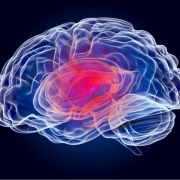3 Steps to Preventing a Migraine
As anyone who suffers from the condition knows, a migraine is much more than a bad headache. It is a collection of neurological symptoms that may include throbbing pain on one side of the head, neck pain or stiffness, nausea, vomiting, and/or visual distortions called aura.
The severity of migraine symptoms can vary widely from person to person, ranging from minor issues with vision without pain to a general feeling of being unwell to being completely immobilized and unable to function. They can last anywhere from a few hours to a few days, and the frequency varies just as widely, from once or twice a week to once or twice a year. The one common denominator is that anyone that suffers from migraine headaches wants to know how to prevent them.
These 3 Steps Can Help to Prevent Migraine and/or Lessen its Frequency and Severity
1) Pinpoint What’s Triggering Your Migraine
The exact chain of events leading to a migraine is still not fully understood. Experts believe that migraine headaches are caused by abnormal brain activity, including dilation and constriction of the blood vessels within the brain. Although the neurological pathway is still unclear, a migraine is typically precipitated by one or more stimuli, commonly called “triggers.” Each person has their own unique set of triggers; the most common ones include stress, lack of sleep, hormone fluctuations, and a wide range of foods, from caffeine to artificial sweeteners.
One of the most effective ways of identifying your specific triggers is to keep a migraine journal. Keeping a record of when and where you get a migraine will help you figure out the foods, events, or other stimuli that typically precede your migraine attack. You can simply use a notebook to record these details or look for online resources or smartphone applications to help you keep a thorough migraine journal.
Questions? Give Us a Call!
However, even if you keep a meticulous journal, common migraine triggers such as nutritional deficiencies, hormone imbalances, and other underlying or co-existing medical problems may go unnoticed without medical testing. If you suffer from migraines, make sure that you get a comprehensive physical exam, and discuss testing for nutritional deficiencies or other co-existing conditions (common ones include depression, anxiety, high blood pressure, and sleep disorder) with your physician.
2) Avoid Your Personal Migraine Triggers
Once you have identified your migraine triggers, the next step is to make a personal commitment to eliminate them as much as possible. For you, this may be as simple as not eating certain foods. It may be necessary, however, for you to make more substantial changes, such as radically modifying your diet, eliminating or taking new medications, getting more sleep, and/or reducing your stress level through exercise and meditation. For most of us, making lifestyle changes isn’t easy, but migraine pain offers superb motivation. You can also ask your physician for advice and support (and refer to the Additional Resources section below).
By and large, the best way to lessen the frequency of migraines is to identify and avoid your personal migraine triggers.
3) Explore Your Migraine-Prevention Treatment Options
There is a wide range of clinically proven preventive treatments that can help reduce the frequency of a migraine attack so make an effort to explore your options! Nutritional interventions, acupuncture, manual therapies (Osteopathic Manipulative Medicine), injection therapies, herbal remedies, prescription medications – or a combination of these treatments – can help you to become migraine-free. The important thing is to stay open-minded in determining what can actually work for you.
Functional Medicine, the approach we take at the Kaplan Center, looks at each patient’s medical condition, medical history, and specific needs. By doing so, we’re able to provide a more personalized approach to treatment that will provide the best outcome for long-term migraine relief.
If you suffer from migraines, make sure to take the time to identify your own migraine triggers, get a comprehensive medical evaluation, and learn about your prevention and treatment options. Your head will thank you!
Additional Resources
- American Headache Society Committee on Headache Education
Phone: 856-423-0043 - Migraine Research Foundation
- National Headache Foundation
Phone: 888-643-5552 or 312-274-2650 - National Institute of Neurological Disorders and Stroke, NIH, HHS
Phone: 800-352-9424 or 301-496-5751 (TDD: 301-468-5981)
We are here for you, and we want to help.
Our goal is to return you to optimal health as soon as possible. To schedule an appointment please call: 703-532-4892 x2











Leave a Reply
Want to join the discussion?Feel free to contribute!